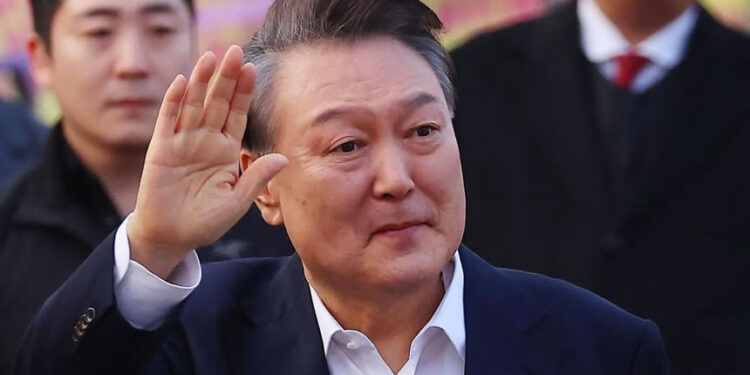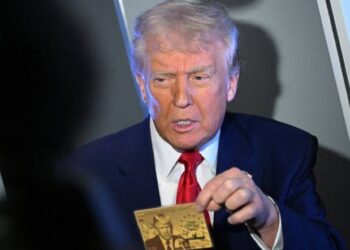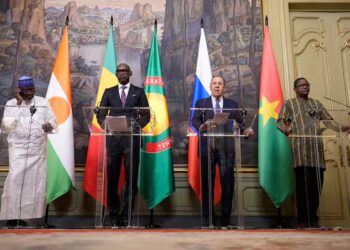South Korea’s Constitutional Court unanimously ousted President Yoon Suk Yeol on Friday, concluding a turbulent four-month political crisis that began with his brazen attempt to impose martial law.
The court’s decisive action triggers immediate presidential elections and marks a stunning fall for the conservative leader who once commanded the armed forces but ultimately crossed a red line by turning them against democracy itself.
The courtroom tensed as Chief Justice Moon Hyung-bae delivered the verdict condemning Yoon’s December power grab, when armored vehicles and combat troops surrounded the National Assembly to prevent lawmakers from voting down his emergency decree.
“By weaponizing the military for political purposes, the respondent committed unforgivable violations of our constitutional order,” Moon declared, his words broadcast live to millions of citizens who had crowded around televisions and smartphones across the country.
The ruling sent immediate shockwaves through Seoul – opposition supporters erupted in cheers outside the courthouse while die-hard Yoon loyalists screamed obscenities at the judges, requiring riot police intervention.
This extraordinary political drama unfolded with cinematic intensity from its opening act on December 3, when Yoon – facing plummeting approval ratings and legislative defeats – made his fateful decision to deploy special forces units to parliament.
The shocking scene of soldiers blocking elected officials from entering their chambers ignited nationwide protests and prompted the swift impeachment vote that ultimately reached the high court.
Legal scholars noted the bitter irony that Yoon, a former prosecutor who rose to power promising law and order, became the second South Korean president ever removed through impeachment – following the 2017 ouster of Park Geun-hye in a corruption scandal.
The court’s detailed 287-page ruling methodically dismantled Yoon’s justification for his actions, which he had framed as necessary to combat “anti-state forces.”
Judges found he had violated at least seven constitutional provisions and multiple criminal statutes, particularly emphasizing his unprecedented breach of the military’s political neutrality.
“A commander-in-chief who orders soldiers to suppress the legislature commits treason against democracy itself,” the opinion stated in its most damning passage.
The decision automatically reinstates the rebellion charges against Yoon that had been suspended during impeachment proceedings, setting up a potential criminal trial that could see the disgraced leader face decades in prison.
As night fell over Seoul, the contrasting scenes across the city captured South Korea’s divided soul. In Gwanghwamun Square, thousands of protesters-turned-celebrators waved flags and passed out traditional Korean rice cakes, while outside the presidential Blue House, a smaller but furious crowd of Yoon supporters burned effigies of the justices.
The emotional extremes reflected the nation’s traumatic journey since December – including two grisly self-immolations by ultra-conservative activists and multiple military standoffs that had raised fears of full-blown authoritarian regression.
Interim President Han Duck-soo now faces the daunting task of stabilizing the government during the 60-day election period, with economic analysts warning of potential turbulence in South Korea’s financial markets and foreign relations.
The timing proves particularly delicate as the nation grapples with Trump administration tariffs and ongoing tensions with North Korea. Yet for many citizens interviewed by international media, Friday’s verdict represented not crisis but catharsis – proof that South Korea’s democratic institutions could survive even the most severe stress test.
As workers began removing Yoon’s presidential portraits from government buildings late Friday, constitutional law professor Kang Won-taek summarized the historic moment: “Today we didn’t just remove a president – we reaffirmed that in Korea, the military serves the people, not the other way around.”
The coming election will determine who leads the nation next, but the court’s resounding message about the limits of presidential power may echo through Korean politics for generations.


































